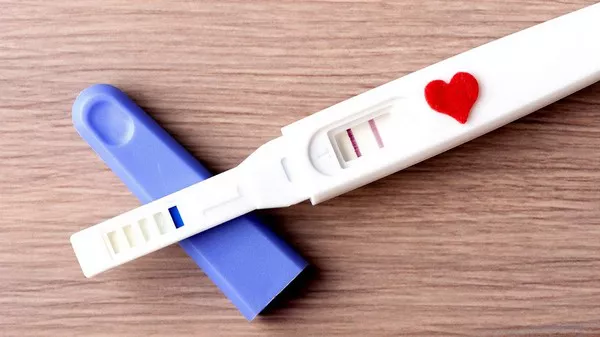Humans have sought ways to test for pregnancy throughout history. In ancient Egypt, a woman who suspected she was pregnant would urinate on wheat and barley seeds; whether they grew would indicate whether she was pregnant. In the 1920s, two German scientists injected a woman’s urine into an immature rat or mouse. If the animal went into heat—in spite of its immaturity—it meant the woman was pregnant.
Nowadays, commercial home pregnancy tests offer a much simpler and more accurate way to detect pregnancy.
However, this hasn’t stopped some people from promoting dubious tests on social media, such as by claiming that the way urine reacts to salt can confirm pregnancy. This particular claim has circulated on various platforms like Facebook and TikTok for at least the last few years. More recent iterations of this claim include TikTok videos—which received hundreds of thousands of views—and Facebook posts.
However, there’s no scientific basis for this claim.
Home pregnancy test kits detect pregnancy by picking up on the presence of a hormone called human chorionic gonadotropin (hCG) in urine. This is facilitated through antibodies that target hCG, which are present at one end of the absorbent paper strip in the kit. When hCG binds to these antibodies, it paves the way for a chemical reaction that results in a change in color on the strip. The TED-Ed video below explains in greater detail how such test kits work.
Pregnancy can also be detected at the clinic using a blood test for hCG. These blood tests use similar immunological principles as home pregnancy test kits.
Every person’s body contains some level of hCG since it’s also produced in the pituitary gland, liver, and colon. But hCG levels produced during pregnancy—especially in the first three months—are much higher than in those who aren’t pregnant. The elevated levels of the hormone are due to hCG production by cells that form a part of the placenta. Peak levels of hCG typically occur in the first eight to eleven weeks of pregnancy.
However, salt doesn’t react to the presence of hCG, nor is there any other known mechanism by which salt can detect pregnancy.
Maria Julieta Germar, an obstetrician-gynecologist from the Philippine General Hospital in Manila, told AFP that there is “no scientific basis or clinical use” for salt pregnancy tests. “Seeing bubbles when you put salt in the urine does not mean you are pregnant,” she said.

